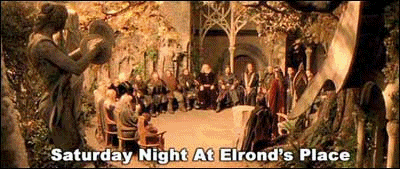For most readers, nothing's happening, so don't worry, carry on with the Thanksgiving menus and preparation.
For most romance writers, a big deal happened since mid-last week, when Harlequin Enterprises, the world's biggest publisher, announced that they were going to monitize their slush piles by sending the rejected writers to their new publishing line, Harlequin Horizons. Much explosions ensued.
If you want to catch up with the saga and have the time, here are the links to fill your writerly hours:
1) HQ happily announces HH, the new line. (Look! Shiny! For a price, you too can be a Harlequin author!)
2) Wherein PW, New Yorker, the Examiner, and even NYT weighed in.
-->In Which The Examiner Pronounced Harlequin "Regressing" Into Vanity Pub
--> New York Times Mocks Romance Writers
--> The New Yorker Makes Fun of Romance Writers as Harlequin Hacks and Writing Romance as "Masturbatory"
As you can see, this is NOT a good thing for a romance writer and a romance writing organization to read about to start their day. It's already a given that people make fun of romance writers and romance as a genre. But when your own #1 publisher is the cause of this new mockery? Very painful and disappointing.
Let me explain that writing organizations are non-profit and function to educate and protect writers who want to make a career out of writing. These organizations do it through by-laws and local chapters, teaching those who are interested the different ways they can market their manuscripts.
The first thing we learn as writers is that money FLOWS to the author, not the other way. That means, you don't pay anyone--not an agent, not a "publisher"--to publish your work; they pay you.
Any agent who rejects your manuscript and then charges money for a publishing service (meaning, you pay $$$ to get edited or $$$ to be published) is kicked out from the Agent's Association.
Any publisher that charges you to publish your work, with false promises of distribution (when there is none), keeps the copyright, splits your royalties and/or make you buy your own books for distribution is a vanity publisher. How does one distinguish a vanity publisher from a self-publishing/Print-on-demand (POD) service? Simple. A self-publishing service allows you to copyright your own work. A self-publishing service is basically a PRINTING service--you upload your own work; you design your own product; you control the quality of the book; you keep the copyright. The service charges you for each printed book and take this expense out of the price you set. There are no thousands of dollars involved.
*NOTE. There is nothing wrong with self-publishing. I've done it with Big Bad Wolf. At the same time, I know that this is not recognized by my organization because of its by-laws, the Romance Writers of America, so I don't promote the book there.
I understand the reasoning behind this rule. If RWA allowed one self-pub into its organization, then every self-pub and vanity-pub will be eligible. There won't be any gatekeeper against the scammers who charge an arm and a leg. A writing organization must have rules to keep publishing a professional process. Can you imagine your Uncle Tom wanting to sign his un-edited and un-vetted romance at RWA because he "published" it and bought 200 copies that are now sitting in his garage?
(ETA. This is not to say there aren't great self-published authors out there. So don't come here and start that old lecture about self-publishing is a matter of choice, etc., 'kay? I respect self-published authors who have done their homework and who understand the difference between vanity publishing and doing-it-oneself; they work very hard on making their books a professional product. I'm talking about those business fronts that slap a name and title on any unedited manuscript and charge the author big sums of money after making false promises that it'll be marketed like a traditionally pubbed book)
Thus RWA, MWA (Mystery Writers of America), and SFWA (Science Fiction Writers of America) acted swiftly. RWA and SFWA took Harlequin off their eligible publishers list, a move that was akin to the shot heard around the world. Because, you know, Harlequin aka Romance Publisher King. Harlequin also publishes many suspense and mystery lines. Here are the RWA, MWA and SFWA's strongly worded announcements:
Harlequin No Longer Eligible
Author and industry blogs exploded. Many examined the Harlequin Horizon (now being called by some, Har Ho or HQHo--oh Harlequin, how could you not have foreseen the snarkage of this name?) and broke down all the monetary details of this new vanity service. Even well-known agents weighed in.
-->The best line-by-line of Har Ho's charges of their services by by Falconesse, who calculated, using Har Ho's numbers, that it would cost a writer $7930 for them to edit his/her 90,000 word manuscript. That's not counting the promotional and distribution charges, folks. And oh, the $20,000 extra if you want a minute/two length Hollywood trailer (starring who, I say? Nekkid George Clooney?)
-->Excellent breakdown of why Har Ho is misleading by author Jackie Kessler
-->A humorous conversation between Har Ho and potential client by author Jackie Kessler
-->Agent Ashley Grayson compares Har Ho to Bernie Madoff and his Ponzi scheme. He didn't mince words.
All of this led to Harlequin making another public announcement to RWA, stating that
It is disappointing that the RWA has not recognized that publishing models have and will continue to change. As a leading publisher of women’s fiction in a rapidly changing environment, Harlequin’s intention is to provide authors access to all publishing opportunities, traditional or otherwise.
which led to a great
John Scalzi translation, calling Harlequin's defense as "putting lipstick on a con job."
There are people defending Harlequin's new venture, of course. Two notable ones are
1)
HQ Editor Stacy Boyd who can't discuss about her employer, Harlequin, but will tell you that self-publishing is the newest, most interesting thing. I have to note here that her inability to talk about HQ really makes the title of her post, OMG RWA!, moot, since what's the point of berating a writing organization berating your own employer that you can't offend/defend/discuss about to your blog commenters?
But you must scroll down and read the many popular authors who came to publicly make their concerns known.
2)
Kat Meyer at Net Galley who wonders what these writing organizations are "so afraid of?" She points out that writers should be given the chance to try a new publishing model since everyone agrees that the old one is broken.
This model is apparently opposite of Yog's Law, which is, "money flows from publisher to the author," because the moment someone pointed that out, publisher Michael Hyatt (from Thomas Nelson, publisher of Christian books, which also has a similar vanity-press deal with Author Solutions/also now taken off RWA eligible publishers list) chimed in the comments:
Where is this etched in stone? We have sellers and we have buyers. Sometimes the publisher buys; sometimes the publisher sells. The same is true of the author.
thus reinforcing the point that yeah, publishers are thinking about not paying authors any more (And yeah, that's why authors are worried about their future.)
The best comment on the thread belonged to the wonderful author, Laura Kinsale. Here's a teeny excerpt:
Ya know, I’m just tired of being lectured about all the “oh oh the future, yer doin it wrong now, oh look, shiny!”
The problem is, this vanity stuff ISN’T a shiny new business model. It’s older than the hills.Instead of making money off of readers buying books, it’s making money off of writers printing books.
Click on Kat Meyer's link, scroll down, and read the awesome rest.
Because of the general meshing of self-publishing and vanity publishing, this whole thing got a bit side-tracked here and there on the Intertubes with self-publishing authors coming in to defend their choices. Nora Roberts gave her opinion about Harlequin's venture:
...it’s a different matter, when a big brand publisher uses its name and its resources to sell this as dream fulfillment, advertises it as such while trying to claim it’s not really their brand being used to make money on mss they’ve rejected as not worthy of that brand in the first place."
and received a lecture from Zoe Winters about the state of publishing.
Roberts and Winters Gunfight(cue The Good The Bad The Ugly theme song)
Zoe Winters: "I’m happy that traditional publishing has worked out for you like it has....But this isn’t the story of most people. You are like the hope that keeps everybody running on the same pointless (for most) treadmill."
Nora Roberts: ''I do wish when I participate in these discussions, I wouldn’t see a response along the lines of: Easy for you to say when you’re Nora. It does negate my opinion and my participation. And a word of advice? If you’re serious about ending ‘a pissing contest’ don’t continue to piss."
Kapow! Kapow! (my edited version)
And that's all the links to keep you busy for today. Till further development, I'll leave you with the inevitable Har Ho Spoof:
Small Beer Press/Horizon Imprint (YOU MUST VISIT!)
Next? Maybe I'll share with you my experience with Scam/Vanity Publishers when I was a newly beginning writer hoping to be published.
Happy reading!
Bear with me while I learn. The first button likes the POST. The second button likes the BLOG site. Please help me by "liking" me. Thanks!
NO NEED TO CLICK TILL I TELL YA: RESERVED FOR NOT SAFE FOR WORK STUFF




























